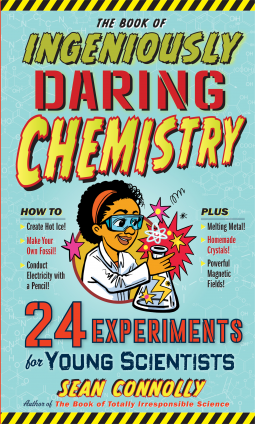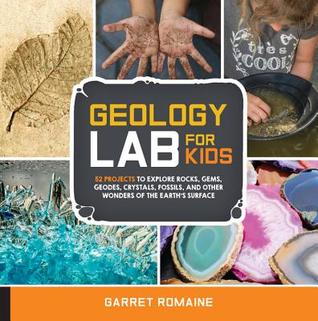The Science of Weird Shit: Why Our Minds Conjure the Paranormal by Chris French, audiobook narrated by Michael Langan, is an introduction to the world of paranormal beliefs and bizarre experiences. Ghostly encounters, alien abduction, reincarnation, talking to the dead, UFO sightings, inexplicable coincidences, out-of-body and near-death experiences. Are these legitimate phenomena? If not, then how should we go about understanding them? Chris French investigates paranormal claims to discover what lurks behind this "weird shit" and provides authoritative evidence-based explanations for a wide range of superficially mysterious phenomena, and then goes further to draw out lessons with wider applications to many other aspects of modern society where critical thinking is urgently needed. Using academic, comprehensive, logical, and, at times, mathematical approaches, The Science of Weird Shit convincingly debunks ESP, communicating with the dead, and alien abduction claims, among other phenomena. All the while, however, French maintains that our belief in such phenomena is neither ridiculous nor trivial; if anything, such claims can tell us a great deal about the human mind if we pay them the attention they are due.
Showing posts with label experiments. Show all posts
Showing posts with label experiments. Show all posts
Book Review: The Science of Weird Shit: Why Our Minds Conjure the Paranormal by Chris French, Narrated by Michael Langan
The Science of Weird Shit is a great listen, and I am sure a wonderful read. The narration is very well done and well worth this listen for audiobook fans. I thought this book was well balanced, there is some levity here but never at the expense of those with claims of experiencing something they felt was unexplained. French explains the scientific, phycological, and physiological explanations for some claims, explores the mathematical aspects of chance and how they contribute as well. The lens of science and exploration instead of just the idea of proving people wrong or foolish is a delightful change from some other books on the topic. I love that French describes in detail how the experiments he shares are designed and carried out- and the reactions to the results. I also love the fact that the book also makes the point that while so much has been explained, and proven about specific things, that there is so much left in the world to figure out that one day we just might find some aspect of the world that is currently viewed as paranormal or weird just might have something to it that we can measure and study to better understand the world around us, and ourselves.
Book Review: Mind Games: 10 Fun Optical Illusions and Perception Projects by Scientific American Editors
Mind Games: 10 Fun Optical Illusions and Perception Projects by Scientific American Editors is a children's nonfiction book. What concepts are behind the creation of cartoons and the ability to seemingly make a dot on a page disappear? Readers will learn the answers through the ten hands-on activities featured in this intriguing title. Each optical illusion is broken down using step-by-step instructions paired with helpful illustrations. Accessible text reveals the important scientific ideas behind each activity, such as the principles of human vision, perception, and light.
Mind Games is a well organized and accessible book that would be a good classroom, homeschooling, and public library addition. I thought the book is well formatted, with well written text that explains the concept and related experiment well. I thought the extended information to help formulate a science fair project or further experimentation was a nice touch. The tools and items needed for the experiments were all things most likely already in the home, which makes the experiments so much more doable, and repeatable as desired. I also liked that an explanation of the scientific method was included, for those that might think they know what it is but need a bit more detail to be able to apply or explain it themselves. I also liked that a glossary and resources for further research were included as well.
Book Review: The Tracker (The Dregs) by Leslie Georgeson
The Tracker is the first book in the eight book (not all yet available) Dregs series by Leslie Georgeson. I’ve done despicable things. My soul is damaged. My body impaired. That’s what happens when you are a soldier for The Company. I was discharged a year ago. Now I am a dreg. Worthless. With a bounty on my head. I’ve become a creature of the night, hiding in an underground maze during the day. Because I’m not ready to die yet. She comes to me one night, needing my help to find her sister. The moment I see her, I want her. Her goodness calls to me, makes me yearn for the impossible. She brings life back to the deadness inside me. I’m no good for her. I will do nothing but corrupt her. But I’m a callous bastard. I can’t resist her. I try not to care for her, but somehow she slips under my skin. She makes me weak. And there is only one thing in this world I am afraid of. Weakness. I’ll never be good enough for her, so I have to finish this job and send her on her way. Before she destroys me.
The Tracker is a story that manages to get a lot of world building, character development, and other series groundwork laid down without having it completely overtake the action and romance of the story. I like that Jessica is a fully developed character with a mind and drives of her own. She is willing to do anything to save her sister, and is fiercely loyal to the dregs once they have gotten to know each other. Tracker and his teammates have serious issues to overcome, and I like that they own those issues and do not pretend to be perfect. I found Tracker to be well written and consistent with his past and position- and really enjoyed reading about the connections between the dregs.I was left wanting to see how it turns out for all of them, and want them all to find a happy ending. I will admit that there were a couple things that dragged a bit for me, but I think they were all necessary to set up for the conclusion of this book and the set ups for the future volumes.
Book Review: The Book of Ingeniously Daring Chemistry by Sean Connolly
The Book of Ingeniously Daring Chemistry by Sean Connolly, the master of messy and dangerous (and therefore extra fun!) science, offers readers more than 20 hands-on experiments that introduce kids to chemistry, element by element. It starts with the basics of chemistry, some history and discovery facts, and experiments that are easy enough to try at home or at school.
The Book of Ingeniously Daring Chemistry is more about the details and background of chemistry than the experiments that I was looking forward to. While I understand that understanding the science behind he experiments is important- not just for safety but for education. However, I think that embedding that information into the experiments would be more effective and interesting for readers. The information is well written and understandable, it would be useful in a classroom or homeschooling setting as well as for personal study. I have not contemplated chemistry outside my kitchen for more years than I care to admit, but I still was able to follow the information.
The Book of Ingeniously Daring Chemistry is a good resource, and offers a good amount of information at a accessible pace. I was disappointed in what I found in the book, but because I was expecting it to be more about the experiments than the periodic table. It is good at what it offers, I was just looking for something different.
Book Review: Maker Lab: Outdoors; 25 Super Cool Projects by Jack Challoner
Maker Lab: Outdoors; 25 Super Cool Projects by Jack Challoner actually includes twenty-eight science projects and experiments to be done outside. The projects focus on Earth and the environment, plants and animals, rocks and minerals, and space, bringing science learning home and into the backyard. Young scientists can make a cave system and find out about underground rivers, construct a working model of tectonic plates and learn about earthquakes, build a telescope and look to the planets and stars, and more. The book includes clear step-by-step instructions, and detailed explanations.
Maker Lab: Outdoors; 25 Super Cool Projects is a well written and organized collection of experiments and activities. The instructions are easy to understand and paired with helpful photographs and labels that can assist young scientists in achieving success. I liked that the projects are divided into four groups, Nature Watch, World of Weather, Water Power, and Earth and Sky. This can help young readers focus on a subject matter that interests them most, or to supplement what they are learning at home or in school. Some of the projects are classics, or at least ones I have seen more than once before. However, a couple seemed new to me. I loved that the templates were all included in one location at the end of the book, along with a glossary and index to make things even more clear and accessible. I am looking forward to trying out some of these projects with my own kids this summer, or letting them loose to try more independently in my yard.
Book Review: Geology Lab for Kids: 52 Projects to Explore Rocks, Gems, Geodes, Crystals, Fossils, and Other Wonders of the Earth's Surface by Garret Romaine
Geology Lab for Kids: 52 Projects to Explore Rocks, Gems, Geodes, Crystals, Fossils, and Other Wonders of the Earth's Surface by Garret Romaine is a non fiction book for middle grade readers. It features
52 simple, inexpensive, and fun experiments that explore the Earth’s
surface, structure, and processes. This family and classroom friendly
guide explores the wonders of geology, such as the formation of crystals
and fossils, the layers of the Earth’s crust, and how water shapes
mountains, valleys, and canyons. The book leaves no excuses for boredom
as it contains a year’s worth of captivating STEAM (Science, Technology,
Engineering, Art & Math) activities.
Geology Lab for Kids is
a great resource for classrooms, homeschooling families, and kids that
just love science and experiments. The photography and explanations of
the experiments are very well done, accessible to young readers and the
adults by their side. In the book there is information that will help
readers identify the most common rocks and minerals, maintain and
display a rock collection, understand insects are trapped and preserved
in amber, understand how geysers and volcanoes form and erupt,
understand how layers of rock reveal a record of time, and how to pan
for gold like a real prospector. The activities are creative and fun,
including some edible (and plenty on inedible) experiments and projects.
I think that this is a perfect resource for getting children excited
and engaged in science.
Subscribe to:
Comments (Atom)






